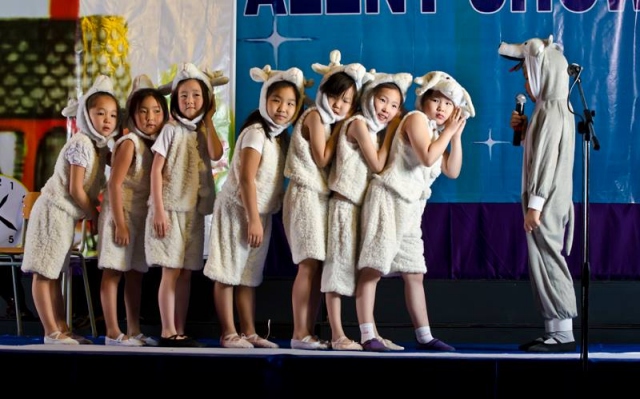When looking for a new overseas teaching destination, many teachers dream of year-round sun, balmy tropical evenings, and free time spent relaxing at the nearest beach or pool. Not so for international teacher Chris Dwyer, who decided to move to the Mongolian capital Ulaanbaatar, where temperatures plummet to an unforgiving -30°C in winter. Teacher Horizons blog editor Sammy asked Chris a few questions about his experience so far.
1. What made you choose Mongolia as a teaching destination?
My wife was looking to transition from teaching ESL to teaching at an International School. We went to a job fair in Bangkok, and Mongolia presented itself as the best and most intriguing option.
2. What’s the best thing about living and teaching in Mongolia?
The best thing is that you can save a lot of money. The cost of living is low, and we are paid in USD. The economy has not been good lately, but it makes living very cheap for us. Also, the women are stunning! The best thing about teaching is that the students are really fun to work with, and for the most part have exceptional English ability. (At least compared to Korea.)

Orchlon International School Talent Show
3. So, about the weather…
The weather is extreme at both ends. In the summer I’ve been told it can get as high as +40°C. (We are connected to the Gobi desert.) I haven’t been here in the height of summer. The winters can get as cold as -40°C, but last year I believe the coldest day was around -35°C. Although this sounds brutal, it’s possible to stay comfortable just by dressing in layers because the cold is very dry.
Ulaanbaatar is at an elevation of about 1400 metres, so this has a big effect on the environment. The dryness produces a lot of static electricity all winter! We don’t get a lot of precipitation as a result, so blizzards are not often a problem. Heavy pollution is more of a problem, since people burn a lot of low-grade coal to stay warm and avoid freezing. That coal goes into the air, unfiltered, and sets down on the city like a heavy fog on the worst of days. Also, because Mongolians are heavy drinkers, men who pass out after a heavy night can freeze to death in the streets.
4. So apart from exercising moderation, what can you do to deal with the weather and pollution?
Dress warm in layers. Wear a carbon filter mask, which serves the double purpose of filtering the air and keeping your face warm. I generally try to avoid being outside for long in the winter.
5. How do you get around? Is walking out of the question?
I love to walk, but it’s not always a good option for safety reasons. Especially at night. So we take an English-speaking taxi service, but mostly we just hail “any” taxi. Many Mongolians who are not official taxis will pick up fares to make a bit of extra money. Fares are generally cheap, anywhere from 1-2 US dollars.

6. What’s the food like? Have you eaten anything weird?
Mongolians have traditionally had access to mostly meat and dairy, and so their diet consists heavily of these. They tend to turn their nose up at vegetables, calling them “goat food”. I was once offered sheep innards – didn’t eat it. I did drink “Aireg” more than once, which is fermented mare’s milk. It has an intensely sour, acidic taste, but once it coats your tongue it becomes bearable. If you drink enough of it, you’ll get drunk, but I can’t say I have. I’ve also drunk its cousin but I can’t remember the name. It’s like vodka, but it smells and tastes like a barn.
7. What do people do for fun in Ulaanbaatar?
Mongolian traditional leisure activities are wrestling, archery and horseback riding. Not so much in the city. In the city it’s all about showing off new wealth and trying to appear high in social rank. Because of the soviet-era influence, activities like going to the ballet are very popular.
As for expats, there is an active nightlife and a decent club scene, for those who are into it. Some other activities such as salsa dancing are available. As for myself, I’m so busy this year, that just having a night off to watch a movie is awesome.
8. What advice would you have for someone thinking about going to live/work in Mongolia?
Bring a high-quality mask that can filter 99% of airborne particles. Don’t walk around alone at night. Don’t be reckless. Be prepared for culture shock if you haven’t lived in a developing country. Practice your tough face. Get out of the city and into the countryside as much as possible.
Looking for a new adventure? Sign up or sign in to browse international schools and search for a job. Want to tell us your teaching story? Email the editor to tell us about it.



